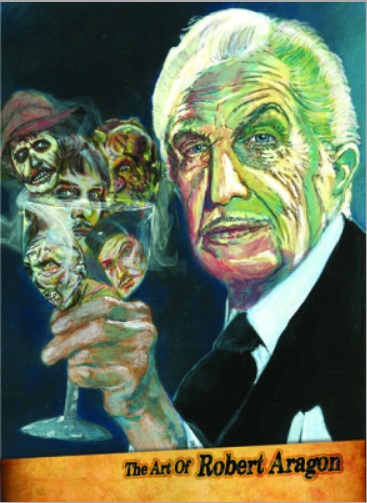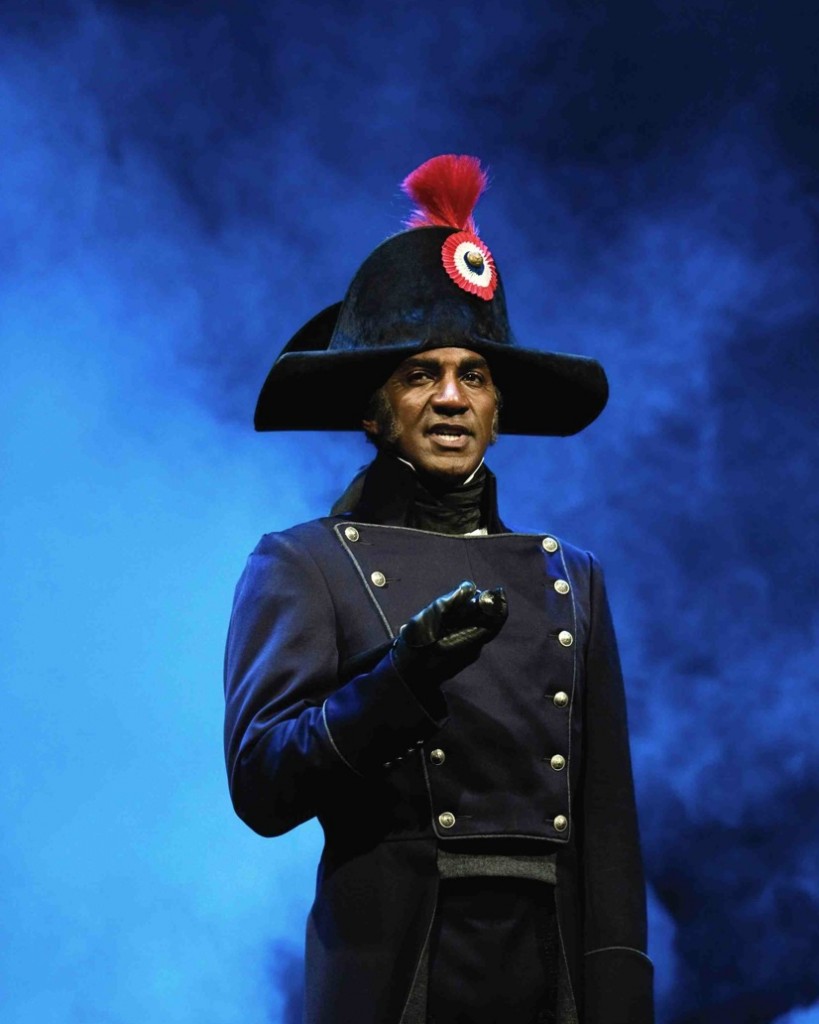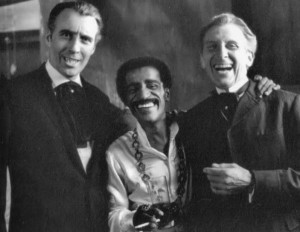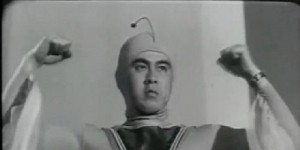Louisville fan Michael Sinclair died March 14 after a long decline. His wife of 26 years, Christa Cook-Sinclair and son, Alex, were with him at the end.
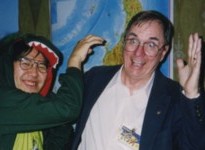
Michael Sinclair under attack by Godzilla.
Sinclair was an avid science fiction reader who got his first taste of fandom at the original RiverCon in 1975, having found out about it from an article in a Louisville paper. That weekend he met John Guidry for the first time – future chair of the 1988 New Orleans Worldcon won in large measure by Sinclair’s efforts as bid party host.
In Sinclair’s fannish memoir at The Thunder Child he claimed to have become involved working conventions as a result of a loc he wrote to File 770 after the 1979 NASFiC:
File 770 (Mike Glyer’s science fiction fan newzine, reporting on fanzines, sf clubs, conventions, fan funds and fanac) [was] whining about something. I think it had to do with [a fan] huckstering out of his hotel room. In any event, I wrote a rebuttal letter to File 770, saying, “The last thing the fannish world needs is either a Con run by or and or/criticized by lawyers.” Cliff Amos saw the letter and called me up to ask if I wanted to work on RiverCon. I said I would like to work on the film program, but would like to have a budget and not depend on library flicks.
Sinclair surely knew the chuckle this would bring from the many friends he made hosting the string of Hurricane-themed bid parties that brought the 1988 Worldcon to New Orleans – a committee chaired by lawyer John Guidry, and with three more lawyers in the leadership.
The New Orleans in 1988 bidders bankrolled the travel of the charismatic Sinclair all over the country to host room parties where he could dispense Southern charm and hospitality, and French Quarter well drinks. He greeted everyone, “Here, have a Hurricane!” and handed them a potent cup of vodka, rum, and fruit juices, mixed with enough grenadine to turn it fire engine red. This was extremely popular.
The Worldcon bidding system is in large measure a test to destruction. Fans want there to be lots of great bid parties anyway, but implicit in that demand is a test of the bid committee’s creative and logistical competence. Unless a group can put together a string of good bid parties, the thinking goes, you can rule out any chance of them coping with the challenge of an actual Worldcon.
So as an audition for a New Orleans Worldcon, Sinclair’s parties led to a ballot box triumph over three competing bids.
However, Sinclair had never intended to be part of running the Worldcon. Once New Orleans won he was done. Ever since then fandom has made sure to ask whether the folks running the impressive parties are the same ones who’ll be running the con.
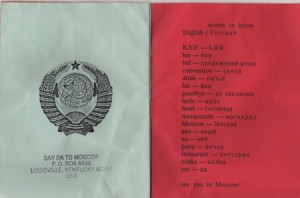
Say Da to Moscow bid passport.
Before long the Sinclairs found they missed the fun of those bid parties. Casting about for inspiration, Christa and Mike created a “Say Da to Moscow” Worldcon bid. Because their idea germinated in 1989, two years before the Soviet Union fell apart, they didn’t have to worry about winning, only about having a good time. The bid theme was a satirical play on the idioms and symbols of the USSR’s Communist Party. Led by “Mikhail Sinclair,” Party Theoretician and General Secretary, the bid’s Central Committee included the late Bruce Pelz, Hotel Liaison; Tony Ubelhor, Minister of Propaganda; Maureen Dorris, Minister of Defensive Camouflage; Jack Reed, Chronicler Emeritus; and miscellaneous Party Members and agents.
Bid parties were paid for by the sale of $5 presupports, which came with a convincing looking passport with all kinds of stuff in Cyrillic lettering.
Christa and Mike soon shelved the party scene as their son Alexander came along in 1990.
The family’s memorial plans are still to be made but, as Mike wished, he will be remembered with a wake later this year at Midwestcon.
 Online voting has begun for the 12th Annual Rondo Hatton Classic Horror Awards — click the link to see the nominees for the best in the horror genre from 2013.
Online voting has begun for the 12th Annual Rondo Hatton Classic Horror Awards — click the link to see the nominees for the best in the horror genre from 2013.
